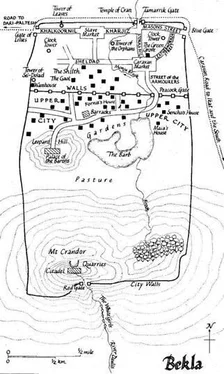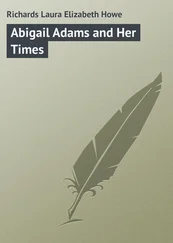Richard Adams - Maia
Здесь есть возможность читать онлайн «Richard Adams - Maia» весь текст электронной книги совершенно бесплатно (целиком полную версию без сокращений). В некоторых случаях можно слушать аудио, скачать через торрент в формате fb2 и присутствует краткое содержание. Жанр: romance_sf, на английском языке. Описание произведения, (предисловие) а так же отзывы посетителей доступны на портале библиотеки ЛибКат.
- Название:Maia
- Автор:
- Жанр:
- Год:неизвестен
- ISBN:нет данных
- Рейтинг книги:4 / 5. Голосов: 1
-
Избранное:Добавить в избранное
- Отзывы:
-
Ваша оценка:
- 80
- 1
- 2
- 3
- 4
- 5
Maia: краткое содержание, описание и аннотация
Предлагаем к чтению аннотацию, описание, краткое содержание или предисловие (зависит от того, что написал сам автор книги «Maia»). Если вы не нашли необходимую информацию о книге — напишите в комментариях, мы постараемся отыскать её.
Maia — читать онлайн бесплатно полную книгу (весь текст) целиком
Ниже представлен текст книги, разбитый по страницам. Система сохранения места последней прочитанной страницы, позволяет с удобством читать онлайн бесплатно книгу «Maia», без необходимости каждый раз заново искать на чём Вы остановились. Поставьте закладку, и сможете в любой момент перейти на страницу, на которой закончили чтение.
Интервал:
Закладка:
"Before there were dreams?" muttered another girl. "There was a hard world, then."
"Now in that village where sweet Lespa lived," went on Occula, "the god they worshipped in those days of long ago was Shakkarn. And as you lot come from all over everywhere, and I doan' know how much or how little you know, I'd better tell you that as I've always understood!- ever since I came to the empire, that is-Shakkarn's a god older than either Cran or Airtha. He was god of this land long, long ago; before the Ortelgans brought their bear to Bekla, even; and it must be all of five hundred years now since they were driven out to their island in the Telthearna. You can tell who are the oldest peoples in the empire, so they say, by how much honor they pay to Shakkarn. Shakkarn's a god of country places, where he's been able to survive. And Gran or no Cran, when Shakkarn leaves the empire-which he will if ever people cease to honor him altogether-the empire will fall, and a good job too. He's a god of simple folk and rough old village temples-not a god of rich priests suckin' up to richer tyrants."
"Oh, be careful, Occula!" whispered Chia, squinting up at her and putting a quick, restraining hand on her arm.
"You needn' look like that, with one eye on me and the other on the north end of south Belishba," replied Occula. "I'm worth far too much money to get into trouble in a dump like this. If we were in the upper city, now, that might be another matter. But anyway, just in case anyone doan' know, Shakkarn's big festival is held during the first days of autumn. And then every village that has a temple of Shakkarn decorates it with flowers and woven hangin's. Very often the women work half a year or more, weavin' them. And on the festival day the men all bring somethin' from their work or their trade: lambs or goats or calves if they're farmers, ironwork if they're smiths, leather if they're cobblers and so on. These are all called Shakkarn's sacrifices, whether they're livin' things or just things the men have made. And every unmarried girl over thirteen lets her hair grow all the year, cuts it off on the day of the
festival and offers it to Shakkarn. And those are called the girls' sacrifices, but what use they are I'll be hanged if I ever heard."
"Why, don't you know? They stuff quilts and pillows with them," said Chia. "Then anyone gets married, they spend their bridal night in the temple, soft and warm as you like. Makes the babies come; well, stands to reason, doesn't it?"
"Well, now I know, doan' I?" said Occula, rolling over comfortably to smile at her. "Maybe I ought to try it myself, d'you think? Sounds like a bit of good stuffin', anyway. But I'm right, aren't I, that Shakkarn has no priests? His rites vary from one village to another, or so I've always been told. They're handed down from one generation to the next and just carried out by the village folk themselves.
"Well, to come back to Lespa. This autumn, in her village, Shakkarn's temple was being decorated from top to bottom and everythin' put to rights for the big festival. Masses of flowers had been brought in-wreaths of trepsis to make a splash, bunches of planella to scent the place, and so on-and the actual decoratin' was bein' done, on the day before the festival itself, by two old village wives who'd done the job for years and meant to go on doin' it every year until they were carried out kickin' and screamin'."
"Ah, we had one or two like that round our way," said Maia.
"Where haven' they? Well, that mornin' this precious two were hard at it, tyin' wreaths and flowers round all the pillars and pilin' green branches under the windows and so on. And then, after a time, they came to have a look at the altar itself.
"Now the altar had a beautiful, thick, fringed and embroidered cloth, which covered it all over and right down to the floor. It had been made years before, by about twenty of the village women workui' together for months, and it was reckoned to be just about the finest thing in the temple. People comin' from other parts were often invited to step in and admire it. But this mornin', when these two old dears came to decorate the altar, they were really upset to see somethin' they hadn't previously noticed. Somehow or other-probably mice-the fringe along the bottom of the altar cloth was hangin' off in several places; and just above the fringe, on one side, there were one or two little rents in the material as well.
" 'Oh, just look at that, now!' says one of them. 'That doan' look very nice at all, does it? That's got to be put right before tomorrow, that it has.'
" 'Yes, it certainly has,' says the other. 'But we haven' really got the time to be doin' it ourselves, have we? what with all these flowers and things still to get done.'
" 'Well, but we doan' want to be askin' any favors of other people,' says the first one. 'Not when everybody knows that it's us as decorates the temple and we've always told them we doan' need any help from anybody.' So then they just sat down and had a bit of a think about it.
" 'I'll tell you what,' says the second one. 'Come to look at it, we doan' really have to take the cloth off the altar to mend it, do we? I think it'd be too heavy for us to lift or carry, anyway. But if anyone didn' mind workin' sittin' or lyin' on the floor, they could mend it where it is, without havin' to move it at all.'
" 'That's a job for a young girl, then,' says the first one. 'And it would be easier to ask a young girl too, wouldn' it? A young girl wouldn' start sayin' "Oh, fancy you need-in' help! I thought you said you could do it all by yourselves"-same as some of the older ones might. Who do we know as'd do?'
" 'Why, there's Lespa,' says the other. 'Very nice, ob-ligin' girl; only lives just up the road, and her people are well off, they've probably got all the colored thread she'd need as well. Then we wouldn' have to pay for it, even.'
" 'Fine, fine,' says the first old tabby. So off they go up the road to knock on Lespa's door.
"Now young Baltis hardly ever stopped keepin' an eye on Lespa's door, even while he might be hammerin' out a bolt or fittin' a grate together. So it's not really surprisin' that he saw them come to the door, and he saw Lespa's mother answer it; and then after a bit Lespa gets called to the door too, and there she is noddin' and smilin', and then she runs back in and comes out with a work-box and she's holdin' up bits of this colored thread and that, and there they all are clackin' away like rooks on a fine evenin'.
"Young Baltis doan' have to be a genius to work out that Lespa's goin' off to the temple to oblige the old girls with a bit of needlework. And the very notion of being able to meet her there fairly filled his heart to thumpin'. It so happened that the smith had gone off to talk to a farmer about a new well-head and chain, so Baltis, he just downs
tools and slips out of the forge while they're still yammerin' away in the sunshine on the doorstep, and up the street he goes and into the empty temple.
"Well, when he got inside he was still supposin', you see, that he'd find himself alone with Lespa-for you know how often we let ourselves believe that what we'd like to happen is what's going to happen. And findin' the flowers lyin' in heaps all round the temple, he put together a posy, all different kinds-selvon and jennet and whitebells and so on-to give to Lespa when she arrived. And he was still sittin' there, imaginin' how he'd give them to her and what he'd say, when suddenly, just outside, he heard the voices of the two old girls as they came back, bringin' Lespa with them.
"Baltis knew that if they found him in there they'd know very well why he'd come, and he didn' fancy being made to look a fool in front of Lespa; but there seemed to be nowhere to hide. I suppose the temple wasn't all that big and hadn't got much in the way of odd corners. Anyway, just as he was at his wits' end, he realized that there was only one place out of sight, and that was under the altar-coverin'; and he just had time to slip in underneath it before Lespa and the others came in.
Читать дальшеИнтервал:
Закладка:
Похожие книги на «Maia»
Представляем Вашему вниманию похожие книги на «Maia» списком для выбора. Мы отобрали схожую по названию и смыслу литературу в надежде предоставить читателям больше вариантов отыскать новые, интересные, ещё непрочитанные произведения.
Обсуждение, отзывы о книге «Maia» и просто собственные мнения читателей. Оставьте ваши комментарии, напишите, что Вы думаете о произведении, его смысле или главных героях. Укажите что конкретно понравилось, а что нет, и почему Вы так считаете.












